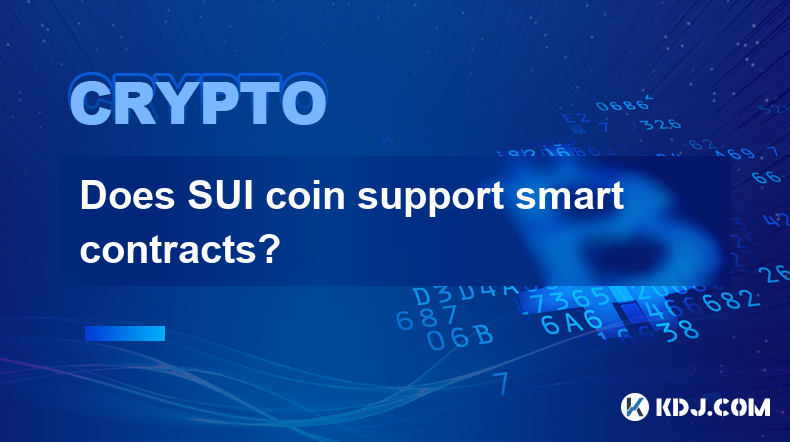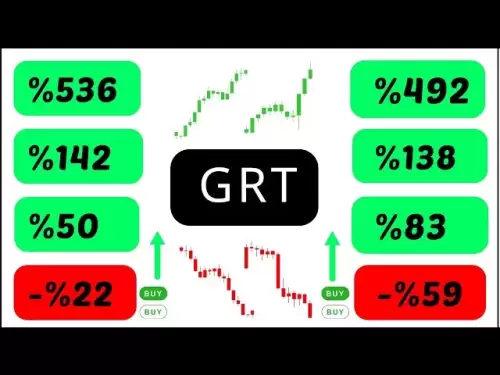-
 Bitcoin
Bitcoin $107,418.6987
1.37% -
 Ethereum
Ethereum $2,420.1293
-0.82% -
 Tether USDt
Tether USDt $1.0005
-0.01% -
 XRP
XRP $2.1829
-0.15% -
 BNB
BNB $645.9797
0.52% -
 Solana
Solana $143.7021
-0.81% -
 USDC
USDC $1.0000
0.00% -
 TRON
TRON $0.2733
-0.52% -
 Dogecoin
Dogecoin $0.1649
0.05% -
 Cardano
Cardano $0.5671
-3.27% -
 Hyperliquid
Hyperliquid $37.1157
0.14% -
 Bitcoin Cash
Bitcoin Cash $484.8319
6.70% -
 Sui
Sui $2.7483
-1.17% -
 Chainlink
Chainlink $13.1312
-1.77% -
 UNUS SED LEO
UNUS SED LEO $8.9997
0.16% -
 Stellar
Stellar $0.2411
-2.81% -
 Avalanche
Avalanche $17.5668
-3.07% -
 Toncoin
Toncoin $2.8365
-1.98% -
 Shiba Inu
Shiba Inu $0.0...01162
-0.02% -
 Litecoin
Litecoin $84.5151
-0.45% -
 Hedera
Hedera $0.1502
-2.43% -
 Monero
Monero $314.3449
-0.46% -
 Ethena USDe
Ethena USDe $1.0002
-0.05% -
 Polkadot
Polkadot $3.3698
-2.21% -
 Dai
Dai $0.9999
0.00% -
 Bitget Token
Bitget Token $4.4171
2.77% -
 Pi
Pi $0.6172
14.07% -
 Uniswap
Uniswap $6.9912
-0.89% -
 Pepe
Pepe $0.0...09489
-4.40% -
 Aave
Aave $255.9361
-2.89%
Does SUI coin support smart contracts?
SUI supports smart contracts via the Move programming language, prioritizing speed and scalability, unlike Ethereum's EVM. While requiring a new language, SUI's ecosystem actively develops tools to ease smart contract development, focusing on security and efficiency.
Mar 26, 2025 at 12:01 am

Key Points:
- SUI's design prioritizes speed and scalability, utilizing a novel consensus mechanism and object-based programming.
- While SUI doesn't directly support Ethereum's EVM (Ethereum Virtual Machine), it has its own Move-based smart contract functionality.
- Developing smart contracts on SUI requires familiarity with the Move programming language and its ecosystem.
- The SUI ecosystem is actively developing tools and resources to simplify smart contract development.
- The security and efficiency of SUI's smart contracts are key factors to consider.
Does SUI Coin Support Smart Contracts?
The short answer is yes, but with important nuances. SUI doesn't support smart contracts in the same way as Ethereum, which relies on the Ethereum Virtual Machine (EVM). Instead, SUI utilizes the Move programming language, offering a different approach to smart contract development. This difference stems from SUI's focus on speed, scalability, and security, which are achieved through its unique architecture.
Understanding the differences is crucial. The EVM is a widely adopted standard, leading to a large developer community and a vast library of existing smart contracts. Move, on the other hand, is a newer language specifically designed for SUI's object-based model. This means developers need to learn a new language and tooling. However, Move is designed with security as a primary consideration, aiming to prevent common vulnerabilities found in other smart contract platforms.
SUI's smart contracts operate within its own environment. This is not compatible with Ethereum smart contracts. Therefore, you cannot directly port Ethereum smart contracts to SUI. This necessitates a complete rewrite using the Move programming language. While this presents a learning curve, the SUI Foundation and community are actively developing resources and tools to ease the transition for developers.
Developing Smart Contracts on SUI:
Developing smart contracts on SUI involves several steps:
- Learning Move: The first and most crucial step is becoming proficient in the Move programming language. The language is designed for safety and security, incorporating features to mitigate common vulnerabilities. Numerous resources, including online tutorials and documentation, are available to help developers learn Move.
- Setting up the Development Environment: This involves installing necessary tools and SDKs provided by the SUI Foundation. These tools facilitate compiling, testing, and deploying smart contracts to the SUI network. The setup process is well-documented, but might require some technical expertise.
- Writing the Smart Contract: This stage involves writing the code in Move, defining the contract's logic and functionality. This requires a strong understanding of programming principles and the specific requirements of the intended application.
- Testing and Debugging: Thorough testing is vital to ensure the contract's functionality and security. SUI provides tools for testing smart contracts in a simulated environment before deployment to the mainnet.
- Deployment: Once thoroughly tested, the smart contract can be deployed to the SUI network. This typically involves interacting with the SUI network through command-line interfaces or integrated development environments (IDEs).
Security Considerations:
Security is paramount in the world of smart contracts. While Move is designed with security in mind, developers must still adhere to best practices to prevent vulnerabilities. This includes secure coding practices, rigorous testing, and careful auditing of the code before deployment. Any vulnerabilities in a smart contract can have significant financial consequences.
The SUI network's security also plays a role. The network's consensus mechanism and overall architecture contribute to the security of smart contracts deployed on it. Staying informed about security updates and advisories from the SUI Foundation is crucial for maintaining the security of deployed contracts.
The Future of Smart Contracts on SUI:
The SUI ecosystem is still relatively young, but it's rapidly evolving. The community is actively developing tools and resources to improve the developer experience and attract more developers to the platform. The long-term success of SUI will heavily depend on the growth and maturity of its smart contract ecosystem. The ease of development and the security of the platform will be key factors in attracting developers and users. Improvements to the developer tools and the addition of more features will likely be ongoing.
Frequently Asked Questions:
Q: Can I use Solidity to write smart contracts for SUI?
A: No. SUI utilizes the Move programming language, not Solidity, which is used for Ethereum smart contracts. You will need to learn Move to develop smart contracts on SUI.
Q: Is SUI compatible with Ethereum?
A: No, SUI is not directly compatible with Ethereum. They use different virtual machines and programming languages. You cannot directly transfer Ethereum smart contracts to SUI.
Q: Are there any tools to help with SUI smart contract development?
A: Yes, the SUI Foundation provides various tools and SDKs to aid in development, testing, and deployment. These tools are continually being improved and expanded.
Q: How secure are SUI smart contracts?
A: The security of SUI smart contracts depends on several factors, including the security of the Move language itself, the security practices of developers, and the security of the SUI network. Thorough testing and auditing are crucial.
Q: What are the advantages of using Move over Solidity?
A: Move is designed with security as a primary goal, aiming to prevent common vulnerabilities. It also offers features tailored to SUI's object-based model, potentially leading to greater efficiency and scalability. However, it's a newer language with a smaller community compared to Solidity.
Disclaimer:info@kdj.com
The information provided is not trading advice. kdj.com does not assume any responsibility for any investments made based on the information provided in this article. Cryptocurrencies are highly volatile and it is highly recommended that you invest with caution after thorough research!
If you believe that the content used on this website infringes your copyright, please contact us immediately (info@kdj.com) and we will delete it promptly.
- Arctic Pablo Coin, Pudgy Penguins, and Crypto Investment: Navigating the Hype
- 2025-06-26 06:27:13
- Bitcoin, Dogecoin, Ethereum: Decoding the Crypto Buzz
- 2025-06-26 04:25:12
- Jupiter (JUP) Price: Downtrend in Danger? Trend Shift Watch!
- 2025-06-26 04:25:12
- Dogecoin Price Prediction: Crypto Analyst Eyes $1 Target – Is the Meme Coin Ready to Rally?
- 2025-06-26 04:45:12
- Coinbase, Shares, and Stablecoins: Riding the Crypto Wave
- 2025-06-26 04:30:12
- Tether, Bitcoin, and Crypto Funds: A New York Minute on the Latest Moves
- 2025-06-26 05:25:12
Related knowledge

How to customize USDT TRC20 mining fees? Flexible adjustment tutorial
Jun 13,2025 at 01:42am
Understanding USDT TRC20 Mining FeesMining fees on the TRON (TRC20) network are essential for processing transactions. Unlike Bitcoin or Ethereum, where miners directly validate transactions, TRON uses a delegated proof-of-stake (DPoS) mechanism. However, users still need to pay bandwidth and energy fees, which are collectively referred to as 'mining fe...

USDT TRC20 transaction is stuck? Solution summary
Jun 14,2025 at 11:15pm
Understanding USDT TRC20 TransactionsWhen users mention that a USDT TRC20 transaction is stuck, they typically refer to a situation where the transfer of Tether (USDT) on the TRON blockchain has not been confirmed for an extended period. This issue may arise due to various reasons such as network congestion, insufficient transaction fees, or wallet-rela...

How to cancel USDT TRC20 unconfirmed transactions? Operation guide
Jun 13,2025 at 11:01pm
Understanding USDT TRC20 Unconfirmed TransactionsWhen dealing with USDT TRC20 transactions, it’s crucial to understand what an unconfirmed transaction means. An unconfirmed transaction is one that has been broadcasted to the blockchain network but hasn’t yet been included in a block. This typically occurs due to low transaction fees or network congestio...

How to check USDT TRC20 balance? Introduction to multiple query methods
Jun 21,2025 at 02:42am
Understanding USDT TRC20 and Its ImportanceUSDT (Tether) is one of the most widely used stablecoins in the cryptocurrency market. It exists on multiple blockchain networks, including TRC20, which operates on the Tron (TRX) network. Checking your USDT TRC20 balance accurately is crucial for users who hold or transact with this asset. Whether you're sendi...

What to do if USDT TRC20 transfers are congested? Speed up trading skills
Jun 13,2025 at 09:56am
Understanding USDT TRC20 Transfer CongestionWhen transferring USDT TRC20, users may occasionally experience delays or congestion. This typically occurs due to network overload on the TRON blockchain, which hosts the TRC20 version of Tether. Unlike the ERC20 variant (which runs on Ethereum), TRC20 transactions are generally faster and cheaper, but during...

The relationship between USDT TRC20 and TRON chain: technical background analysis
Jun 12,2025 at 01:28pm
What is USDT TRC20?USDT TRC20 refers to the Tether (USDT) token issued on the TRON blockchain using the TRC-20 standard. Unlike the more commonly known ERC-20 version of USDT (which runs on Ethereum), the TRC-20 variant leverages the TRON network's infrastructure for faster and cheaper transactions. The emergence of this version came as part of Tether’s...

How to customize USDT TRC20 mining fees? Flexible adjustment tutorial
Jun 13,2025 at 01:42am
Understanding USDT TRC20 Mining FeesMining fees on the TRON (TRC20) network are essential for processing transactions. Unlike Bitcoin or Ethereum, where miners directly validate transactions, TRON uses a delegated proof-of-stake (DPoS) mechanism. However, users still need to pay bandwidth and energy fees, which are collectively referred to as 'mining fe...

USDT TRC20 transaction is stuck? Solution summary
Jun 14,2025 at 11:15pm
Understanding USDT TRC20 TransactionsWhen users mention that a USDT TRC20 transaction is stuck, they typically refer to a situation where the transfer of Tether (USDT) on the TRON blockchain has not been confirmed for an extended period. This issue may arise due to various reasons such as network congestion, insufficient transaction fees, or wallet-rela...

How to cancel USDT TRC20 unconfirmed transactions? Operation guide
Jun 13,2025 at 11:01pm
Understanding USDT TRC20 Unconfirmed TransactionsWhen dealing with USDT TRC20 transactions, it’s crucial to understand what an unconfirmed transaction means. An unconfirmed transaction is one that has been broadcasted to the blockchain network but hasn’t yet been included in a block. This typically occurs due to low transaction fees or network congestio...

How to check USDT TRC20 balance? Introduction to multiple query methods
Jun 21,2025 at 02:42am
Understanding USDT TRC20 and Its ImportanceUSDT (Tether) is one of the most widely used stablecoins in the cryptocurrency market. It exists on multiple blockchain networks, including TRC20, which operates on the Tron (TRX) network. Checking your USDT TRC20 balance accurately is crucial for users who hold or transact with this asset. Whether you're sendi...

What to do if USDT TRC20 transfers are congested? Speed up trading skills
Jun 13,2025 at 09:56am
Understanding USDT TRC20 Transfer CongestionWhen transferring USDT TRC20, users may occasionally experience delays or congestion. This typically occurs due to network overload on the TRON blockchain, which hosts the TRC20 version of Tether. Unlike the ERC20 variant (which runs on Ethereum), TRC20 transactions are generally faster and cheaper, but during...

The relationship between USDT TRC20 and TRON chain: technical background analysis
Jun 12,2025 at 01:28pm
What is USDT TRC20?USDT TRC20 refers to the Tether (USDT) token issued on the TRON blockchain using the TRC-20 standard. Unlike the more commonly known ERC-20 version of USDT (which runs on Ethereum), the TRC-20 variant leverages the TRON network's infrastructure for faster and cheaper transactions. The emergence of this version came as part of Tether’s...
See all articles
























































































